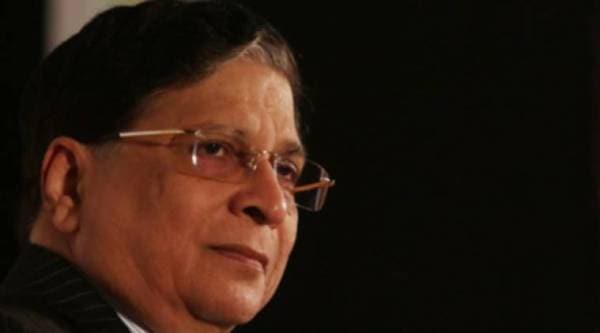 Former Chief Justice of India Justice (Retd) Dipak Misra. (File photo)
Former Chief Justice of India Justice (Retd) Dipak Misra. (File photo)
Former Chief Justice of India Justice (Retd) Dipak Misra emphasised on the need to give primacy to fundamental rights of each citizen and called the “notion” that in India everyone talked of rights but not duties. Justice Misra was speaking at a webinar on ‘Transformative Constitutionalism’ on Monday jointly organised by the Faculty of Law and the Institute of Leadership and Governance of the MS University of Baroda.
Each individual must be given the due recognition and his identity must be adequately credited so that he realises his freeness and potentiality, said the former Chief Justice of India.
Emphasising further on fundamental rights of each citizen, Misra stated that rights of the citizens should always have primacy. “The state (all the wings of the state) puts limits to the power of the government which is one aspect of governance. The other aspect is to take such measures whereby you protect and pour in more rights to the citizens. There is some erroneous notion that in India everyone talks about rights but no one talks about duties… If people are not carrying out their duties, a civilised society cannot exist. …all of us must bear in mind that protection of our fundamental rights, our statutory rights should have primacy,” Misra said.
He talked about the quality of life of each citizen as he made a reference to the understanding of transformative constitutionalism by a judge from South Africa. “There is a South African judge who says (regarding constitutional transformation) that the judges are the custodian of constitutional values. They have been given the responsibility to protect human dignity. He emphasises on the quality of life of all citizens and to free the potential of each person,” Misra said.
Talking about the power vested through the Constitution and how respect for constitutional behaviour, constitutional values and the constitutional concept of separation of power facilitates the idea of constitutionalism, Misra said, “…In our Constitution, the power is given to the executive, the legislature and the judiciary. The Constitution has been trying to put limits on exercise of this power and there is a propagation of the idea of respecting mutually the other wings’ power because separation of power is the foreground of constitutionalism.”
The former Chief Justice highlighted that every country has its own vision, but eventually the telescopic vision leads us to one goal to transform. “The citizen rights must be given primacy. What does one expect from transformative constitutionalism: their rights are respected, freedom and dignity respected.”
With reference to judgements like decriminalising section 377 and scrapping down section 497 (adultery), Misra talked about evolution of ‘certain ideas’ and the importance of inclusiveness and how the court took into consideration the realities of life and the importance of individuals when the judgements were passed.
Misra also emphasised on the importance of singular voices and concluded by saying that “The purpose of transformative constitutionalism is to sow the seeds of principles of freedom, liberty, equality and fraternity.”